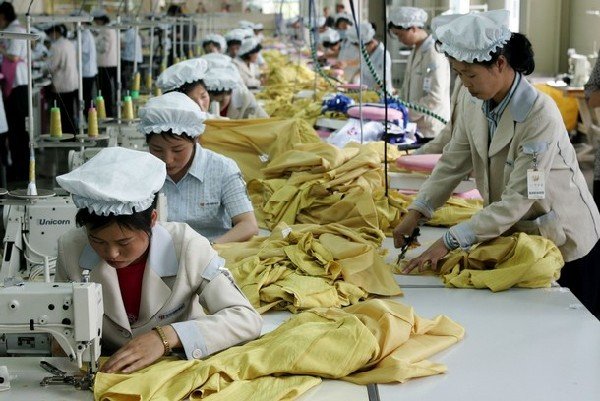
North Korea has announced today it is withdrawing all its workers from the joint-Korean Kaesong industrial zone and suspending operations there.
The move follows weeks of warlike rhetoric from Pyongyang after it was sanctioned by the UN for carrying out its third nuclear test in February.
Kaesong industrial park was established almost a decade ago and had been a symbol of co-operation between North and South Korea.
However, a North Korean official said it could now be closed permanently.
In a statement, South Korea’s Unification Ministry said the decision “cannot be justified in any way and North Korea will be held responsible for all the consequences,” the AFP news agency reports.
Kaesong complex, just over the border in North Korea, employs more than 50,000 North Korean workers but is funded and managed by South Korean firms.

Pyongyang has already banned South Koreans from entering, but during a visit to the site, Kim Yang-gon, secretary of the party’s Central Committee, said North Korea would now “temporarily suspend the operations in the zone and examine the issue of whether it will allow its existence or close it”.
The North’s KCNA news agency quoted Kim Yang-gon as saying that South Korea and the US “insult the country’s dignity and make the zone a starting point of war”.
“How the situation will develop in the days ahead will entirely depend on the attitude of the South Korean authorities,” Kim Yang-gon said.
The statement made no reference to the nearly 500 South Koreans who are in Kaesong as managers.
One South Korean told the Associated Press he had heard nothing about the order from the North Korean government.
“North Korean workers left work at six o’clock today as they usually do. We’ll know tomorrow whether they will come to work,” he said.
Earlier, South Korean officials played down reports that the North could be about to carry out a nuclear test.
A defense ministry spokesman said the widely reported activity detected at the Punggye-ri underground test site appeared to be routine and that there was “no indication that a nuclear test is imminent”.
UN Secretary General Ban Ki-moon said such a nuclear test would be a “provocative measure”, and warned that North Korea cannot continue “confronting and challenging the authority of the Security Council and directly challenging the whole international community”.
Russia and China have called for calm and a return to dialogue.
Speaking during a visit to Germany, Russian President Vladimir Putin said that as a neighbor of North Korea his country was “worried about the escalation” of tensions.
Vladimir Putin warned there was a risk of a conflict on the Korean peninsula which would make the Chernobyl nuclear disaster “seem like a child’s fairy tale”.
The UN imposed tough sanctions on North Korea following its third nuclear test on February 12.
Pyongyang has responded by issuing almost daily threats to use nuclear weapons and saying it would restart its nuclear reactor.
North Korea has also shut down an emergency military hotline between Seoul and Pyongyang.
Last week it warned it would not be able to guarantee the safety of foreign embassy staff after April 10, and that countries should begin evacuating their diplomatic staff.
North Korea’s state media have been broadcasting a continuing diet of war and retribution with programmes about biochemical war, nuclear war and military preparations dominating the listing.
However, some analysts have suggested that the rhetoric is in large part designed to shore up the standing of a young, inexperienced leader, Kim Jong-un.
Meanwhile, Japan’s defence ministry said the country’s armed forces have been ordered to shoot down any North Korean missile headed towards its territory.
Over the weekend, the US cancelled a scheduled test of its Minuteman III ballistic missile, citing concerns that it could be misinterpreted by Pyongyang.
[youtube hGktEoEDLyI]